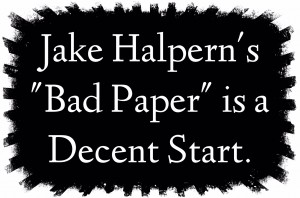
By: Robert J. Nahoum
A new book entitled “Bad Paper†by journalist and author Jake Halpern has introduced his readers to the seedy and often criminal side of the debt collection industry. Through accounts of ex-con debt collectors strong-arming consumers and intimidating competitors, Halpern illustrates the worst players in a very dirty debt collection business.
Bad Paper has gotten a tremendous amount of well deserved attention and has shined a brighter light on an almost universally loathed industry that gets modest coverage in the press. This level of attention is undoubtedly a positive for consumers and justice. However, I and other consumer lawyers who spend our days in the trenches of the debt collection business are cautious. My concern is that the press and consumers should not be lulled into the false belief that to be wrong, debt collection tactics must rise to the levels illustrated in Bad papers.
Under federal debt collection laws known as the Fair Debt Collection Practices Act (FDCPA for short), debt collectors are precluded from using false, misleading or harassing debt collection tactics. While not crossing the line into criminality as in Bad Papers, debt collection agencies and debt buyers often run afoul of the FDCPA.
Common FDCPA violations include:
- Communicating with a consumer who is known to be represented by an attorney
- Misrepresenting the amount or status of the debt
- Suing on a time barred debt (usually 6 years)
- Calling a consumer’s friends and family to discuss the debt
- Trying to collect unauthorized fees
- Making false threats to garnish wages without intending to do so
- Falsely threatening to sue without the intention of doing so
- Attempting to collect a debt discharged in bankruptcy.
If a debt collection agency violates the FDCPA, you can sue the debt collection agency for statutory damages up to $1,000.00, actual damages (like pain and suffering) and the debt collection agency may have to pay for your attorney.
Bad Papers is a decent start. However, concerned consumers should be just as interested in hearing stories of more common examples of debt collection harassment and abuse.
If you need help settling or defending a debt collection law suit, stopping harassing debt collectors or suing a debt collector, contact us today to see what we can do for you.
The Law Offices of Robert J. Nahoum, P.C
(845) 232-0202
www.nahoumlaw.com
info@nahoumlaw.com
